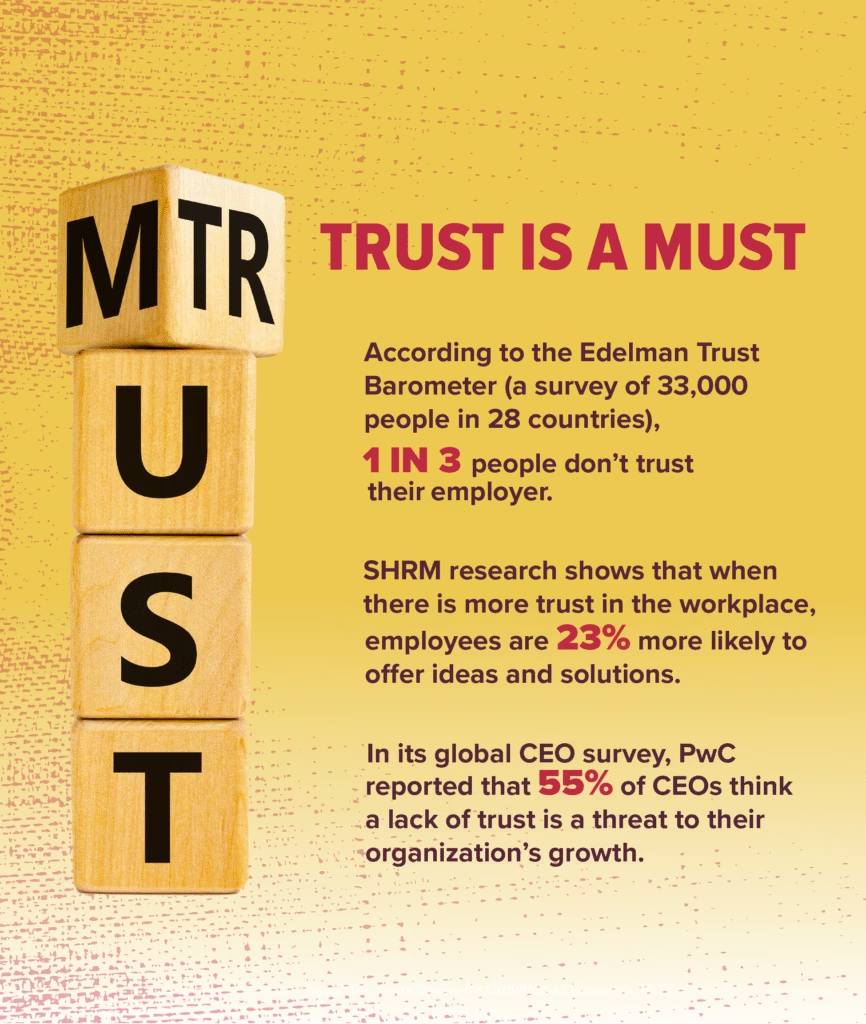
Trust between parties plays a pivotal role in our society. You book a taxi, trusting that the driver will safely take you to your intended destination. Not only that, you trust that the driver will follow a reasonably cost-efficient route where you will reach your destination on time without getting heavy on your bank account.
You go to a restaurant trusting that you will be treated well and served hygienic, well-made, tasty food. The similarity we can observe from these two use cases is that we can immediately witness if our trust has been breached. For example, in the taxi example above, if the driver is wandering off in a direction that wasn’t agreed upon before, you will notice immediately. Similarly, in the restaurant example above, if the staff don’t treat you with a welcoming smile, you can spot that immediately.
When you are in a position to notice a problem immediately, you can take action early to minimise further damage from happening. In an office-based setup, if an employee is spending too long engaging in activities (e.g., using social media, chatting with other employees, etc.) that aren’t remotely related to the task at hand, it won’t take long for other colleagues around to notice this. From the employee’s point of view, when he or she notices that others are watching you, it won’t take long for them to notice that they are not utilising their time effectively.
This trigger movement is sufficient for them to correct their course of action quickly. When it comes to remote working, there is no one around you to give you cues, either verbally or non-verbally, if your course of action needs correction. Therefore, whether you are deliberately wandering off the track or not, getting back on track is relatively challenging.
This is where trust plays a pivotal role in remote work, as in many other aspects of our lives. The greater the trust you have between you and your employees, the less you need to be concerned about whether they are actually doing the work they are supposed to do.
To build trust, you can do the following:
Build rapport
Build a solid relationship with your remote employees. Be transparent and clear about your genuine intent to understand them. The more you know about each other, the more you gain trust. Remember, trust is a two-way street.
Clear expectations
Always be up-front and clear about your expectations. If it is a deadline that you are working towards, ensure that your employees know about it. Ensure you have a clear policy on remote working. A lack of a clear policy can lead to frustration.
Listen to your employees
This is where active listening comes in handy. Always strive to listen to your employees with the mindset of helping them, not to judge them. Listening to your employees greatly helps to build a solid relationship between you and them and to win trust.
Help your employees grow
When you help your employees grow, the whole team grows, and eventually the entire organisation thrives. When you reward your employees with career growth opportunities, they become happy, and their productivity increases. The more they are happy, the more they are positive about the organisation and management. Remember, an organisation’s growth is not just about the profits you make each quarter.
Check-in without micro-managing
Check in frequently to ensure that your employees are not heading towards a blind alley. Use your expertise to help them steer away from potential threats and dangers. Help them achieve their tasks by empowering them. It is important to remember that check-ins should by no means give you the free license to micromanage them.
In a Nutshell
The trust between the employer and the employee plays a pivotal role when it comes to productivity. The lack of trust leads to subpar collaboration and productivity. Greater trust between employee and manager leads to better individual productivity. Hence, better team dynamics, collaboration, and productivity. Therefore, it is important to identify trust issues during the early stages and proactively address those concerns before they become unmanageable.
I hope you enjoyed this post 👍. Drop a comment below to get involved.
🎯 Need Expert Help?
If you’re facing challenges with remote work, I offer 1:1 coaching and tailored support to help you succeed at remote setup. Whether you’re just starting out, growing as a remote contributor, leading a team, or launching a remote-first start-up, Remote Winners offers targeted 1:1 coaching to help you thrive in a distributed world. We also provide tech consultancy services—from idea-to-product guidance to cloud deployment and cybersecurity reviews—to help organisations strengthen their technology and processes.
If you are unsure where to begin, drop us a message and we’ll be in touch.




